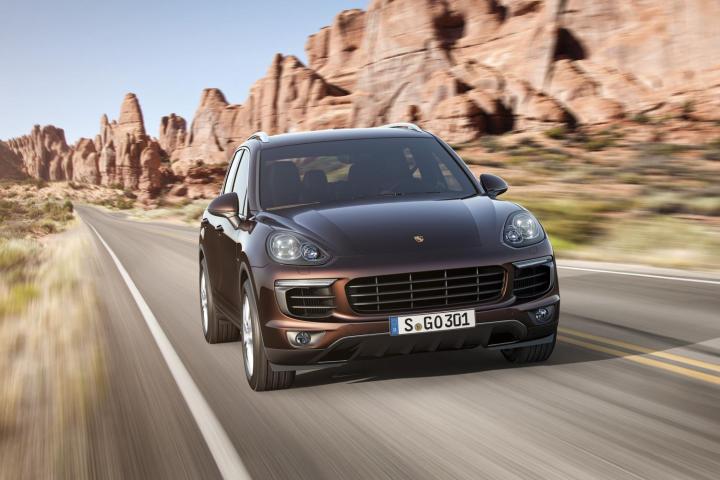
But Porsche says it now has a plan to address emissions noncompliance with its Cayenne Diesel. The carmaker claims software updates and new catalytic converters are all that will be required, Reuters reports. However, Porsche’s proposal needs to be approved by both CARB and the U.S. Environmental Protection Agency, something executives are confident will happen before the end of the month.
The Cayenne uses a separate 3.0-liter V6 powertrain also shared with several Audi and Volkswagen models, which were implicated in a subsequent EPA probe. Porsche stopped sales of the Cayenne Diesel in November and the other brands soon followed, adding 85,000 cars to the total.
There are around 13,000 Cayenne Diesel SUVs in the U.S. that need to be recalled, spanning model years 2013 through 2016. The 2013 and 2014 models will require both software updates and new catalytic converters, Porsche claims, while the 2015 and 2016 models will only need the new software. Porsche estimates that less than half of the affected vehicles will need the new catalytic converter.
“The technical aspects have all been submitted, we will wait whether there will still be proposals for corrections by the Americans,” Porsche CEO Oliver Blume told Reuters. Blume stepped up to the job after former Porsche boss Matthias Muller was elevated to the VW Group CEO position vacated by Martin Winterkorn as a result of the scandal. Blume said he did not know how long the recall process would take.
Blume added that the proposed fix was actually created by Audi. The majority of 3.0-liter V6 cars affected are Audi models, including diesel versions of the A6, A7, A8, Q5, and Q7. The Volkswagen Touareg TDI also uses the same noncompliant powertrain. In addition to sharing this diesel powertrain, the affected Touareg, Q7, and Cayenne models all share a common platform.


